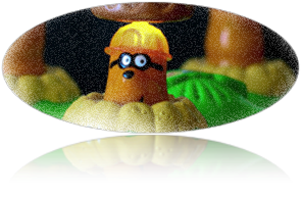The other day, when discussing Dodd-Frank’s ill effects on the financial system, I detected a pattern.
Politicians had identified the crash of 2007 – 2009 and “did something.” They rushed to reform the financial regulatory system in accord with their preconceived notions. Since then the financial system has become more concentrated, with community banks dropping off like flies.
The pols say they are defenders of the downtrodden, but they simply played into the hands of the “fat cats.”
It’s the way of ham-handed interventionism. Every fix puts us in a bigger fix, so to speak, as “unintended consequences” multiply in the negative.
 It’s like Whac-A-Mole, the arcade game: a mole pokes its head out of a hole. You hit it with a mallet. And then another mole pops up out of another hole. And you hit it. And you keep doing this, faster and faster, gaining points.
It’s like Whac-A-Mole, the arcade game: a mole pokes its head out of a hole. You hit it with a mallet. And then another mole pops up out of another hole. And you hit it. And you keep doing this, faster and faster, gaining points.
It’s sort of like economic policy. The voters see you hit something. Ding!
But more moles pop up.
In real life, it’s more like Hydra Whac-A-Mole. Bop one mole, out come two; bop another, up pop three. And it’s not just five holes on the board. It’s an infinity.
Interventionists cause more problems than they solve. Try to “solve” poverty by taking from the rich and giving to the poor? Soon, there’s not as much money in rich pockets to invest, and there are less jobs: the poor become trapped; they cease to improve themselves for work; their children lack role models; &tc., &tc., &tc.
Whac-A-Mole!
Or, as they might as well say in the halls of Capitol Hill: Hail, Hydra.
This is Common Sense. I’m Paul Jacob.